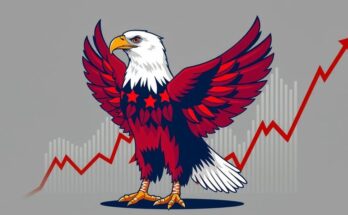Geopolitics presents a sharp divide in perceptions between economists and corporate leaders regarding its potential to influence the global economy. While economists express unease about macroeconomic implications and long-term risks, many corporate executives remain optimistic, considering only the immediate effects of trade disruptions. They argue that much of the economic decline is slow-moving rather than abrupt, leading many to downplay the extent of geopolitical threats.
According to recent ING research, many C-suite executives admit to uncertainty about geopolitics’ overall impact, with nearly half perceiving only marginal negative or positive effects. A notable concern is the war in Ukraine, which affected lucrative business avenues in Russia, alongside supply chain complications such as tariffs and sanctions. However, some organizations see potential for positive outcomes, including growth opportunities in Europe and less stringent regulations.
The prevailing mood in corporate boardrooms, reflected in various confidence indicators and surveys, does not indicate an impending crisis. According to Dutch CEOs, the outlook for 2025 appears optimistic; they are not anticipating significant adverse events. This outlook starkly contrasts with economists, like those in the World Economic Forum’s Chief Economists Outlook, who foresee challenges ahead, predicting subdued growth and economic frictions.
The difference in perspectives can be rooted in the nature of decision-making. Corporate leaders often embrace a cautiously optimistic approach, while economists remain focused on risk factors and macroeconomic stability. With government interventions mitigating the immediate impacts of the Ukraine conflict, corporate leaders appear less phased. However, many corporate minds may overlook the broader repercussions of geopolitical tensions which could undermine their growth in the long run.
In the face of geopolitical uncertainties, economists also caution against overlooking long-term impacts on corporate health. Reduced investment due to uncertainty may stifle demand and restrict future supply. Additionally, regulatory shifts could favour incumbents but stifle innovation, posing risks for overall economic growth. The fragmentation of global trade can hinder corporate advantages, suggesting that while reshoring may seem beneficial, it can actually erode long-term growth potential within Europe.
Ultimately, clarifying the distinction between immediate impacts vs. macroeconomic trends, and direct risks versus tail risks, will uncover the complexity behind these contrasting views. By doing so, businesses and economists can appreciate their differing lenses of assessment, further aiding the understanding of our dynamic economic landscape.
Economists and corporate leaders differ sharply in their views on how geopolitics influences the global economy. Economists are concerned about macro impacts and long-term risks, while many executives remain optimistic, often focusing on direct effects. Recent surveys indicate that corporate confidence remains high, contrasting economists’ predictions of subdued growth. Understanding these differing perspectives is crucial to grasping the complexities of global economic interactions.
In summary, while corporate leaders exhibit an optimistic outlook towards geopolitics and its effects on their operations, economists maintain a more cautious stance, warning of potential long-term ramifications. This divergence highlights the importance of understanding both immediate and macro influences in shaping economic outlooks.
Original Source: www.weforum.org



